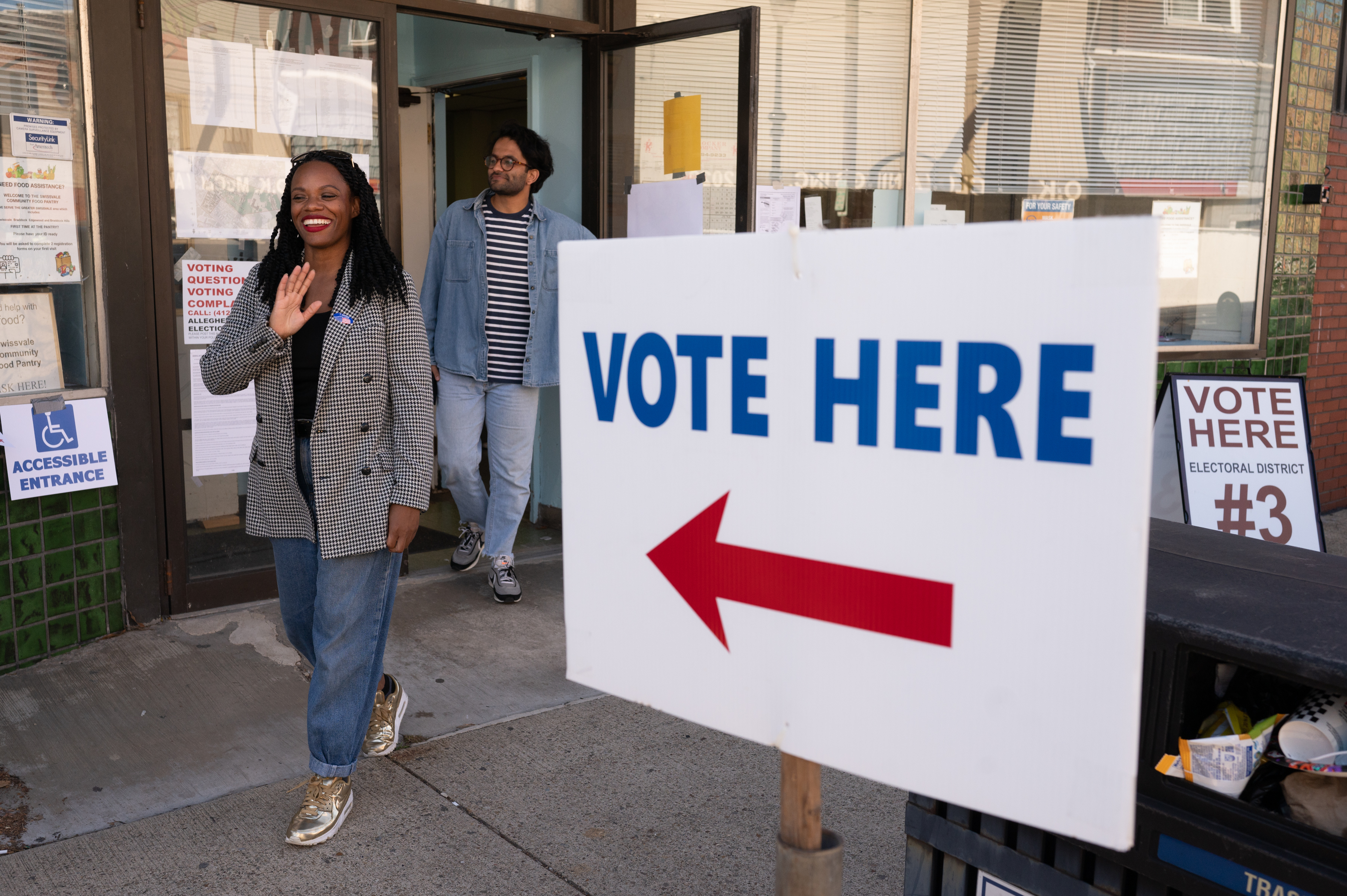The weeds have reclaimed the spacious backyard of their Mt. Airy home and the grass is brown, but Sharon Gershoni and Sarra Lev point out where Gershoni used to grow vegetables. Tomatoes, cucumbers, radishes.
The neglected garden is a symptom of their prolonged limbo in the American immigration system.
"I think in 2011 was where I shared with a friend — we bought a lot of seeds together, and I started seedlings, so I think I was more hopeful then," recalls Gershoni. "I had quite a lot of plants ready."
"Then she had to leave [the country] and so we had to give them all away," explains Lev.
Gershoni's exodus, mandated by the U.S. immigration system, was only temporary, but in a few short weeks, the couple will decide whether to stay here or to leave for good. In June, the U.S. Supreme Court is expected to rule on a challenge to the Defense of Marriage Act (DOMA), the federal law defining marriage as exclusively between a man and a woman. This binational, same-sex couple in Philadelphia expect two possible outcomes: either a green card, or a moving truck.
"It's terrifying," says Lev, on the possibility of leaving friends, family, and her job in Philadelphia, "[but] we decided that we need to be able to build our lives as a permanent thing, not as a temporary thing."
Gershoni, an Israeli citizen, has lived in the United States since 2006 by stringing together a series of work visas, mostly by teaching courses. DOMA prevents Americans such as Sarra Lev from petitioning for a legal permanent status — or a green card — for same-sex partners.
Local
Breaking news and the stories that matter to your neighborhood.
That doesn't leave a lot of options for Gershoni, a gifted photographer and neuroscientist. Rachel Tiven, executive director of Immigration Equality explains that's the case for as many as 36,000 gay, bi-national couples in the U.S.
"The basic problem," as she puts it, "is that LGBT families are completely invisible in the American immigration system... a system that is based on family unification or family relationships."
Without an entry into that system, couples like Gershoni and Lev face crises again and again.
Without a permanent visa, Gershoni cannot get research grants for work in a lab. Her career has been on hold for almost a decade. At the end of each semester, Gershoni must find another course to teach to keep her work status current, or she needs to be on a plane out of the country in ten days.
Lev points out boxes in the living room, left from January, the last time they started packing.
The couple never talked publicly about their situation before, worried that it would affect Geshoni's work visa, but both say they have come to a breaking point.
"If [DOMA] doesn't fall then we're leaving and so in some ways there's nothing at stake anymore," Lev says thoughfully.
If the Supreme Court upholds the section of the Defense of Marriage Act that stands between Gershoni and a green card, they plan to go to Canada, where same-sex marriage is legal and Lev's mother lives.
"There was a lot of relief to decide that," Gershoni adds quietly.
"We are hoping it can happen here, because we have a community here a house here. Sarra has her life work here and part of her family ... So it will be sad to leave but I feel like it will be like letting go and just not trying to flutter with my wings anymore."
"Just to rest a little bit."
She would like to know she can stay somewhere long enough to plant another garden.
This story was reported through a news coverage partnership between NBC10.com and NewsWorks.org



